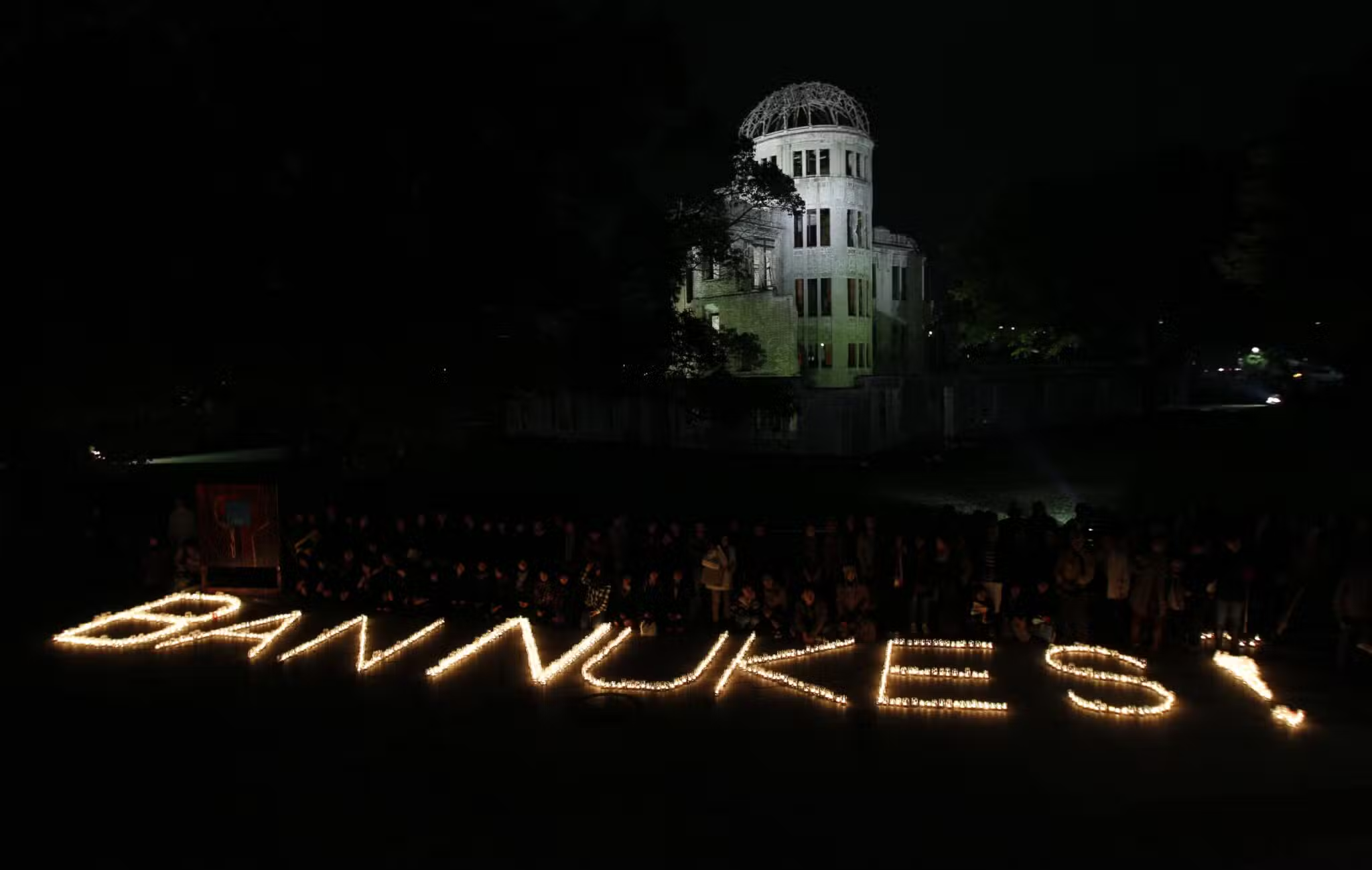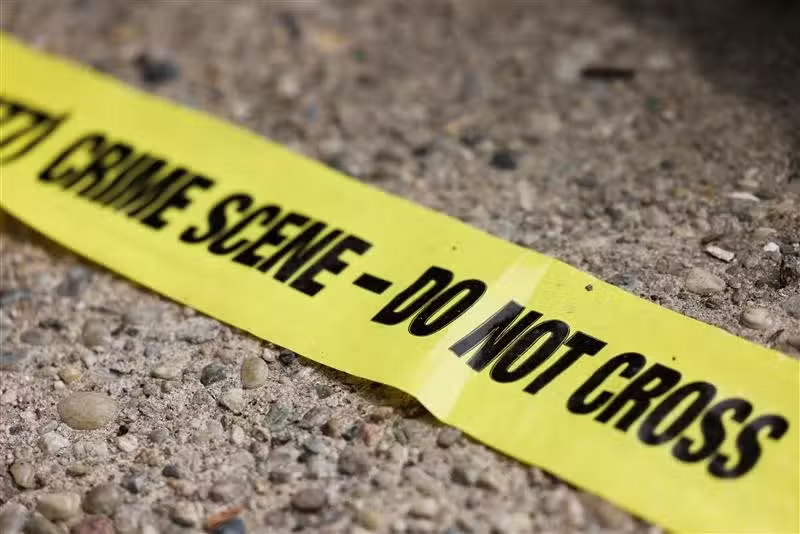YAOUNDE, Cameroon (OSV News) — Nigerian soldiers fired upon students who were protesting the relentless attacks on Christian villages in Nigeria, according to the British nongovernmental organization Release International.
The students were demanding protection for Christian-majority communities frequently targeted by Fulani militia.
On April 18 late at night, in Chikam village, central Nigeria Plateau state, Fulani herders attacked, resulting in the tragic deaths of a computer science student named Dading James Jordan and a mother with her child. On April 19, they killed 14 more locals in the village.
In response, Plateau State University students carried Jordan’s body to the campus April 19, but soldiers responded with lethal force, killing one student and injuring another.
While the military acknowledged its role, they claim it was an unintended consequence of a stray bullet and “angry students” burning down the military checkpoint “when the soldiers tried to stop them from protesting,” a witness of the events said as reported by the Foundation for Investigative Journalism.
Plateau State University is closed until May to try to calm the situation.
Release International said that “convoys of motorcycles, each carrying three armed Fulani terrorists continue to wreak havoc by attacking villages.”
It explained that residents have been trying to defend themselves with whatever they have — sticks, stones, slingshots and farming implements — but soldiers have taken the side of the attackers “by shooting at them and dispersing their defense efforts,” the NGO said. “Meanwhile,” it said, “Fulani terrorists, armed with automatic rifles, remained unchallenged” just some 1,700 feet away.
“Release International has repeatedly reported the failure of Nigerian military to protect Christian villagers, even when they have been warned in advance of attacks,” said Paul Robinson of Release International. “But this is the first time we have heard that soldiers have opened fire on those they should be protecting,” he added.
Emeka Umeagbalasi, director of the Intersociety advocacy group in Nigeria, has said it was not the first time, however.
Umeagbalasi recounted two separate incidents in 2017 when military attacks on Christians left dozens dead. The first came in January 2017 when the Nigerian military bombed and killed 236 internally displaced Christians and claimed that they thought they were Boko Haram terrorists. The second incident, Intersociety director said, was in December of the same year when military jets rained bombs in the Numan Christian community in Adamawa state, killing dozens.
“The most shocking was that as the military jets were bombing and killing the defenseless Numan Christians … jihadist Fulani herdsmen were on the ground, simultaneously blocking and attacking those defenseless Christians fleeing from the scene of the military jet bombings and in the end, the … Fulani … killed not less than 30 … bringing the total death toll by the Nigerian
military and the jihadists to not less than 80,” Umeagbalasi told OSV News of the incident.
In April 2023, Intersociety published a report that made headlines around the world for showing that since 2009, when the Boko Haram Islamist militant group began its murderous campaign to set up a caliphate across the Sahel, at least 52,250 Christians and 34,000 moderate Muslims had been butchered or hacked to death.
Robinson has called for an investigation into “the role of the military in these allegations” of the recent student death, and insisted that the wider question of why Fulani militia continues to attack Christian communities, despite a military presence, must be answered.
Umeagbalasi explained that the intricate tapestry of Nigeria’s Fulani community reveals a stark division: the “Fulanis of the forest,” known to be violent and brutal with little regard for human life, and the “Fulanis of the home,” who reside in settled communities, value family ties, tradition and stability.
Historically marginalized, the Fulanis of the forest found an unexpected ally in the Nigerian government under former President Muhamadou Buhari, Umeagbalasi said.
Buhari, himself a Fulani, hails from the “forest” lineage. Umeagbalasi said under the Buhari administration, the “Fulanis of the forest” gained prominence within the military and security apparatus.
“At the time when Buhari was president, 98% of senior military officers and other security (staff) were Fulanis,” he told OSV News.
Umeagbalasi said the jihadi Fulani militia operations have worsened the situation of Christians in Africa’s most populous nation — a country that accounts for nine out of every 10 Christians killed in Africa, according to Open Doors and that is still reeling from a Boko Haram insurgency.
Boko Haram is another threat for Christians and a militant organization responsible for the 2014 kidnapping of 276 schoolgirls from their dormitory in the middle of the night. Global outrage followed the kidnappings, with notorious “Bring Back Our Girls” campaign, drawing support from then-first lady Michelle Obama and actor Sylvester Stallone, to only name two high profile names. In 2016 and 2017, negotiations led to the liberation of around 100 of the captives.
“But a decade after that fateful night in April 2014, the world has largely forgotten the plight of the so-called Chibok girls. But for the victims and their families, the tragedy is ongoing,” Reuters reported April 11.
“Especially at night, I think about my daughter,” Solomon Maina, in tears, told Reuters in an interview. “I will never forget her,” the agency reported the father of a girl still missing as saying.
Christian parents of the girls regularly pray in their local church for the release of dozens of girls that remain kidnapped. Their church is apparently still open.
“In Nigeria, more than 1000 churches were closed down last year. Since 2009, between 18,500 and 19,000 churches have been attacked and burnt down. In Plateau (state) alone, you have more than 50 Christian communities chased away from their communities by jihadhists,” Umeagbalasi said.
“The killing of Christians has continued because nothing is being done, the international community is silent,” Umeagbalasi told OSV News.
He blasted the Biden administration for looking away as Christians are being massacred in Nigeria, and insisted that the persecution of Christians in Nigeria ought to be a central international issue in the upcoming U.S. presidential election.
“America cannot claim to be a champion of freedom if it cannot defend the first freedom — the freedom of religion and freedom of worship,” he said.
By Ngala Killian Chimton | OSV News







News & Commentary
Nigerian military under fire for continued attacks on Christians
YAOUNDE, Cameroon (OSV News) — Nigerian soldiers fired upon students who were protesting the relentless attacks on Christian villages in Nigeria, according to the British nongovernmental organization Release International.
The students were demanding protection for Christian-majority communities frequently targeted by Fulani militia.
On April 18 late at night, in Chikam village, central Nigeria Plateau state, Fulani herders attacked, resulting in the tragic deaths of a computer science student named Dading James Jordan and a mother with her child. On April 19, they killed 14 more locals in the village.
In response, Plateau State University students carried Jordan’s body to the campus April 19, but soldiers responded with lethal force, killing one student and injuring another.
While the military acknowledged its role, they claim it was an unintended consequence of a stray bullet and “angry students” burning down the military checkpoint “when the soldiers tried to stop them from protesting,” a witness of the events said as reported by the Foundation for Investigative Journalism.
Plateau State University is closed until May to try to calm the situation.
Release International said that “convoys of motorcycles, each carrying three armed Fulani terrorists continue to wreak havoc by attacking villages.”
It explained that residents have been trying to defend themselves with whatever they have — sticks, stones, slingshots and farming implements — but soldiers have taken the side of the attackers “by shooting at them and dispersing their defense efforts,” the NGO said. “Meanwhile,” it said, “Fulani terrorists, armed with automatic rifles, remained unchallenged” just some 1,700 feet away.
“Release International has repeatedly reported the failure of Nigerian military to protect Christian villagers, even when they have been warned in advance of attacks,” said Paul Robinson of Release International. “But this is the first time we have heard that soldiers have opened fire on those they should be protecting,” he added.
Emeka Umeagbalasi, director of the Intersociety advocacy group in Nigeria, has said it was not the first time, however.
Umeagbalasi recounted two separate incidents in 2017 when military attacks on Christians left dozens dead. The first came in January 2017 when the Nigerian military bombed and killed 236 internally displaced Christians and claimed that they thought they were Boko Haram terrorists. The second incident, Intersociety director said, was in December of the same year when military jets rained bombs in the Numan Christian community in Adamawa state, killing dozens.
“The most shocking was that as the military jets were bombing and killing the defenseless Numan Christians … jihadist Fulani herdsmen were on the ground, simultaneously blocking and attacking those defenseless Christians fleeing from the scene of the military jet bombings and in the end, the … Fulani … killed not less than 30 … bringing the total death toll by the Nigerian
military and the jihadists to not less than 80,” Umeagbalasi told OSV News of the incident.
In April 2023, Intersociety published a report that made headlines around the world for showing that since 2009, when the Boko Haram Islamist militant group began its murderous campaign to set up a caliphate across the Sahel, at least 52,250 Christians and 34,000 moderate Muslims had been butchered or hacked to death.
Robinson has called for an investigation into “the role of the military in these allegations” of the recent student death, and insisted that the wider question of why Fulani militia continues to attack Christian communities, despite a military presence, must be answered.
Umeagbalasi explained that the intricate tapestry of Nigeria’s Fulani community reveals a stark division: the “Fulanis of the forest,” known to be violent and brutal with little regard for human life, and the “Fulanis of the home,” who reside in settled communities, value family ties, tradition and stability.
Historically marginalized, the Fulanis of the forest found an unexpected ally in the Nigerian government under former President Muhamadou Buhari, Umeagbalasi said.
Buhari, himself a Fulani, hails from the “forest” lineage. Umeagbalasi said under the Buhari administration, the “Fulanis of the forest” gained prominence within the military and security apparatus.
“At the time when Buhari was president, 98% of senior military officers and other security (staff) were Fulanis,” he told OSV News.
Umeagbalasi said the jihadi Fulani militia operations have worsened the situation of Christians in Africa’s most populous nation — a country that accounts for nine out of every 10 Christians killed in Africa, according to Open Doors and that is still reeling from a Boko Haram insurgency.
Boko Haram is another threat for Christians and a militant organization responsible for the 2014 kidnapping of 276 schoolgirls from their dormitory in the middle of the night. Global outrage followed the kidnappings, with notorious “Bring Back Our Girls” campaign, drawing support from then-first lady Michelle Obama and actor Sylvester Stallone, to only name two high profile names. In 2016 and 2017, negotiations led to the liberation of around 100 of the captives.
“But a decade after that fateful night in April 2014, the world has largely forgotten the plight of the so-called Chibok girls. But for the victims and their families, the tragedy is ongoing,” Reuters reported April 11.
“Especially at night, I think about my daughter,” Solomon Maina, in tears, told Reuters in an interview. “I will never forget her,” the agency reported the father of a girl still missing as saying.
Christian parents of the girls regularly pray in their local church for the release of dozens of girls that remain kidnapped. Their church is apparently still open.
“In Nigeria, more than 1000 churches were closed down last year. Since 2009, between 18,500 and 19,000 churches have been attacked and burnt down. In Plateau (state) alone, you have more than 50 Christian communities chased away from their communities by jihadhists,” Umeagbalasi said.
“The killing of Christians has continued because nothing is being done, the international community is silent,” Umeagbalasi told OSV News.
He blasted the Biden administration for looking away as Christians are being massacred in Nigeria, and insisted that the persecution of Christians in Nigeria ought to be a central international issue in the upcoming U.S. presidential election.
“America cannot claim to be a champion of freedom if it cannot defend the first freedom — the freedom of religion and freedom of worship,” he said.
By Ngala Killian Chimton | OSV News